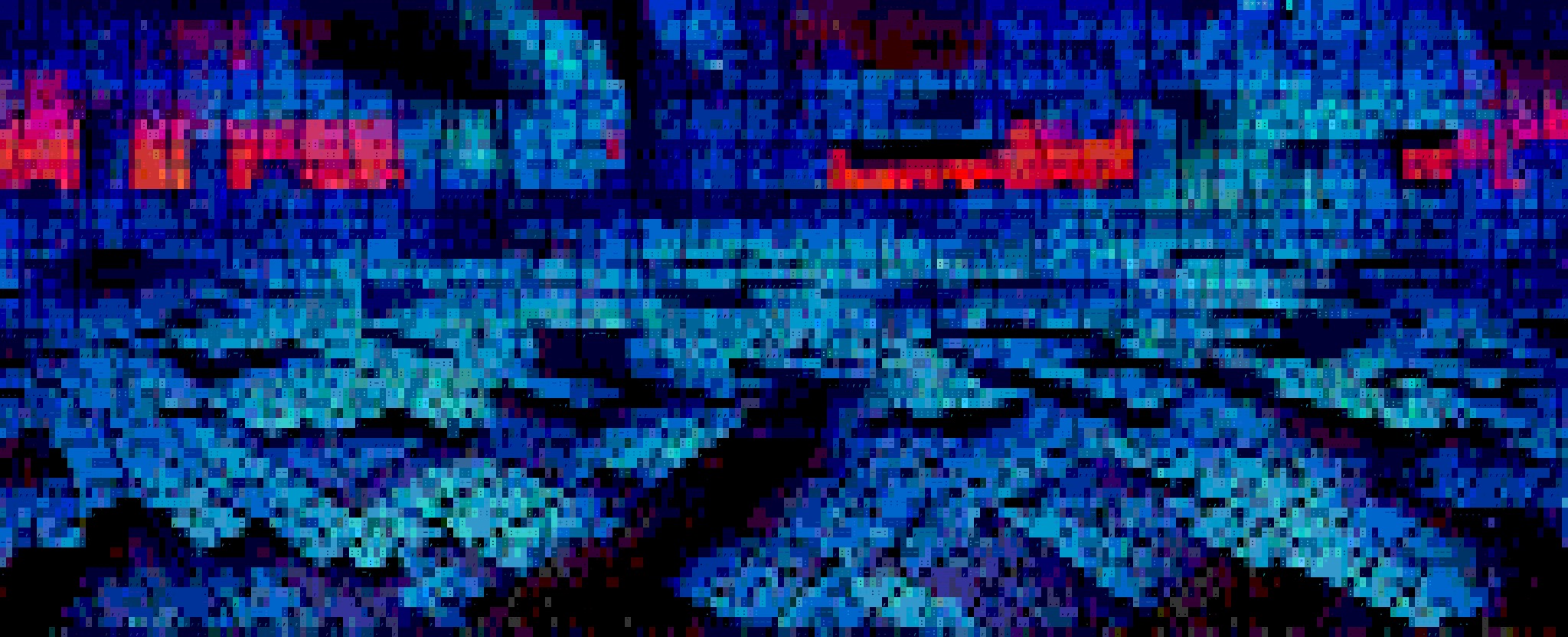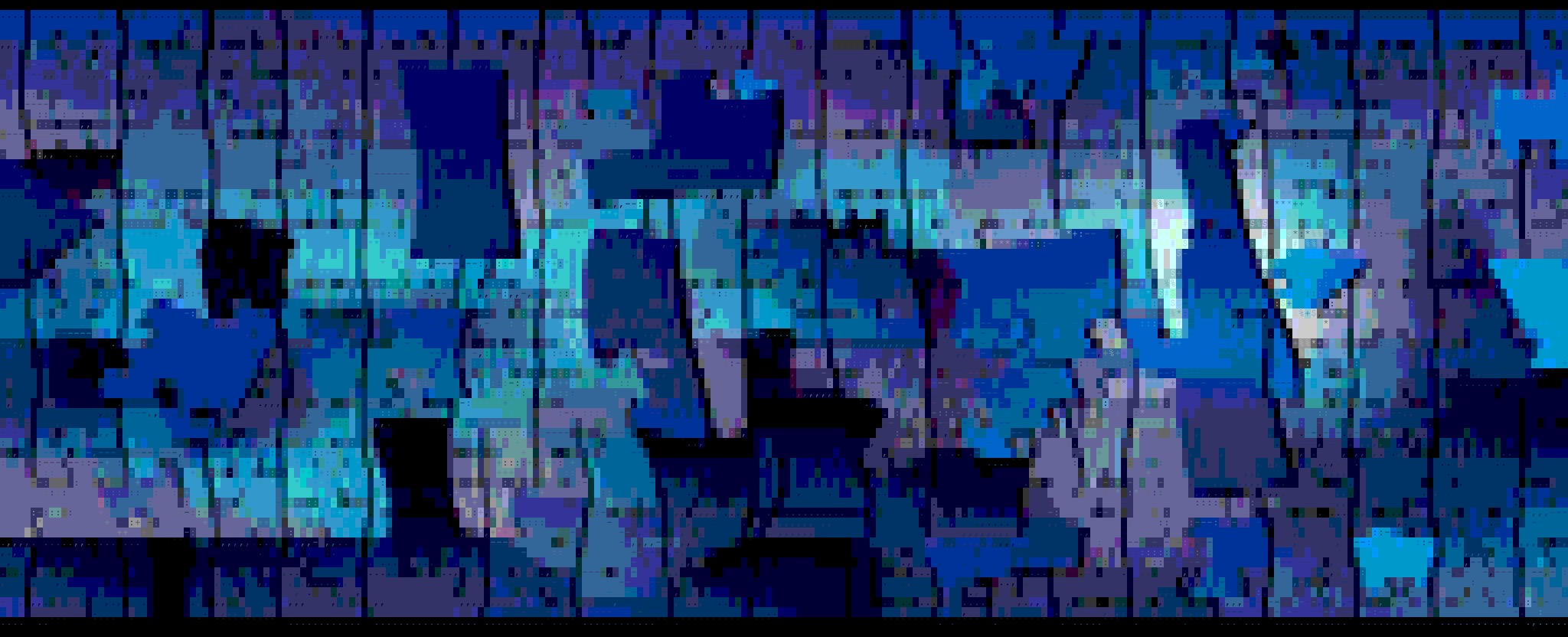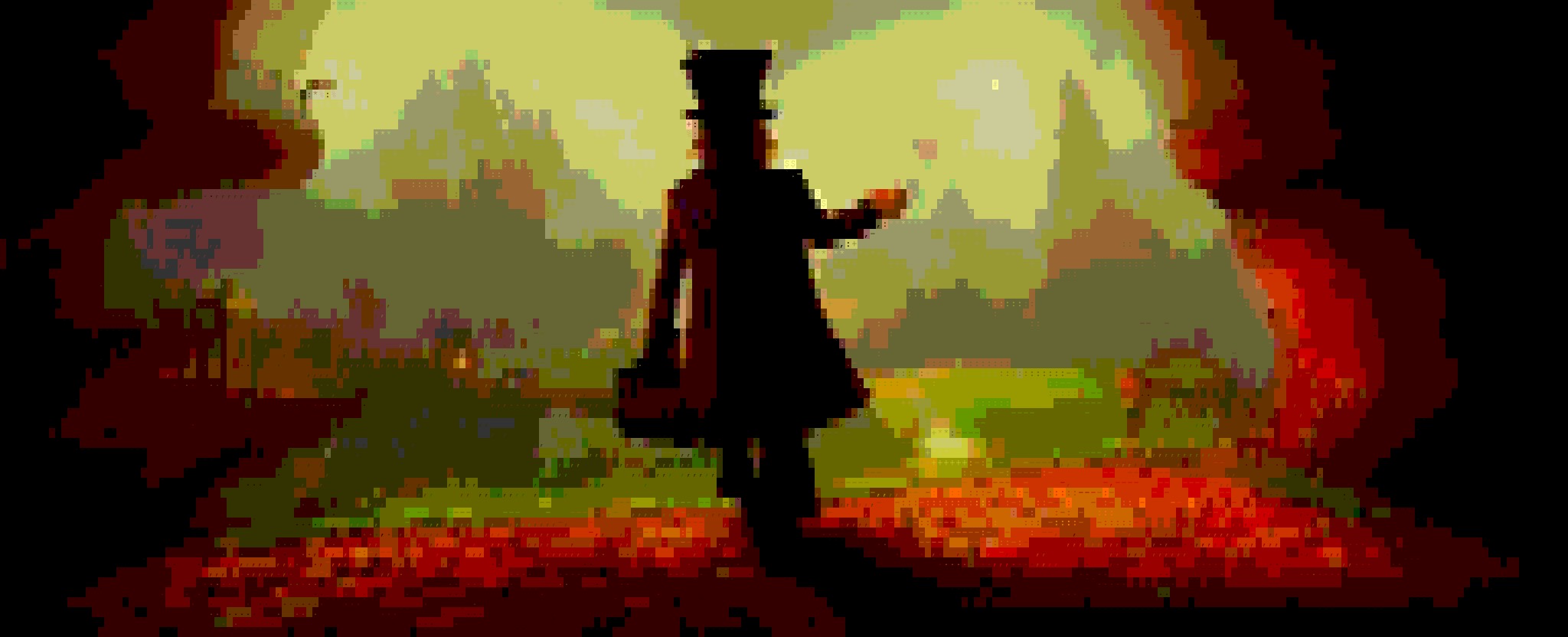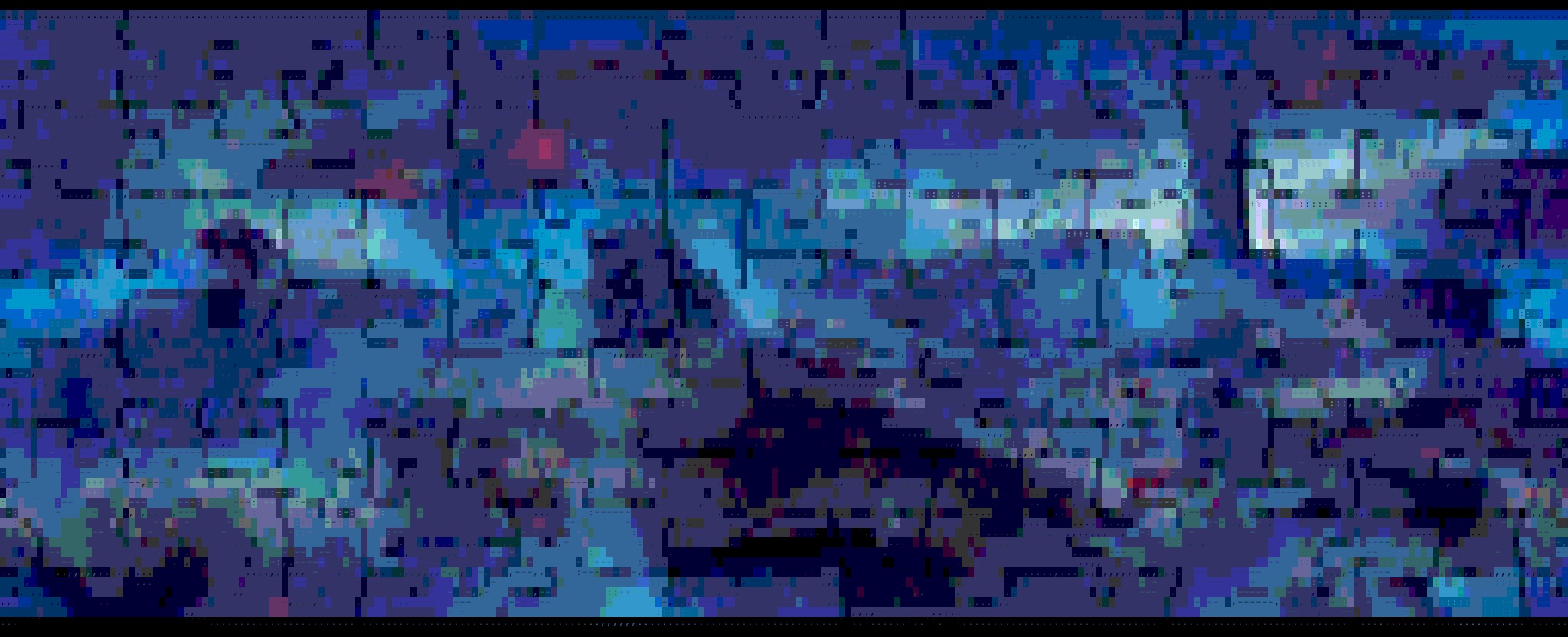Metaphysics: Puzzlements, Pragmatism, and Pseudo-Problems
views expressed dated: 2023
Thoughts as of 05-2025
- I have rethought many of these view and kept a good deal of them around.
- Mostly, I have rejected the Quinean picture that lots of this note is based on, while still feeling ok with some of the metaphors.
- I would also revise some of the talk of truth-determinants and pseudo-questions, but the principle I do still stand behind is that we must be able to say what a clear answer to a metaphysical question would do or would look like.
- Ultimately, I think a lot of the lack of clarity of my position here was due to my thinking that ontology had to somehow deal with substance in a vacuum and then get on to facts and properties. I now think that view is exactly backwards.
- Fundamentality not being relevant to existence falls in place easily if we first think of facts and inferences and then ask about substance. Or as Wittgenstein said in the Tractatus "The world is the totality of facts, not things". That is a claim that I won't defend here, until I get the time to revamp my views here more.
- A good way to sum this point up would be the slogan: “'Exists' is downstream of other inferential connections."
I call your attention to a curious fact. It makes not a single jot of difference so far as the past of the world goes, whether we deem it to have been the work of matter or whether we think a divine spirit was its author....
But philosophy is prospective also, and after finding what the world has been and done, and yielded, still asks the further question "what does the world promise?"
— William James
Intro
At one time I thought abstract metaphysical questions were the most mysterious and perplexing questions in the world. I felt compelled to come up with answers to them. If a question is about the fundamental nature of things, I felt it could not be left unanswered. Is there a God? What is the nature of time? What is reality ultimately constructed of? Are there natural laws? Are there possible worlds? I was fascinated by these puzzlements.
After much reading and intellectual struggle, I gradually became overcome by a disappointing conviction that these were all pseudo-questions. Metaphysical talk, I came to believe, was just nonsense jumbles of words that only seemed like they made sense. They were the talk of the Mad Hatter or the March Hare. I came to believe that metaphysical puzzles arose out of the misuse of terms or the posing of questions that by definition had no answers. I have experienced both naive wonder and sober disillusionment, and I have come to settle on a view between these extremes, but I want to acknowledge the psychological pull of both sides. The metaphysical realist loves their arcane mystery and the anti-realist loves their mundane denial of the significance of deep armchair questions. These questions troubled me so much that I was eager to slam the lid on the whole Pandora's box and be rid of the headache. I just could not believe in the validity of some types of metaphysical inquiry. At the same time however, it seemed like certain metaphysical questions were meaningful and it would be wrong throw the baby out with the bathwater.
Can we really settle the constituents of ultimate reality from the armchair? Can we really just reach out with our minds and decide or discover the nature of causality or time? I think not, but I do think we can make models that have meaningful predictions or meaningful impacts on prediction-maker. We can also deduce the way thing must or might be from what we already know. In this note, I would like to spell out my basic position on the subject of metaphysics generally, with a focus on ontology. I could, and maybe will, write a lot more on this topic but for now I hope to keep things relatively brief. I believe deciding one's meta-position on metaphysical questions is of high importance methodologically speaking, but I do not believe the metaphysical questions themselves, in most cases, are of that much importance.
I liken metaphysical propositions to the least empirically determined (most underdetermined by experience) propositions that we believe. That means that the change in probability that observations confer on metaphysical hypotheses is much smaller than that of more "close-to-experience" hypotheses. I nevertheless believe metaphysical propositions are cognitive (truth-apt) when they make sense (Which to me means to have meaningful truth-determinants). Since this discussion is about the nature of metaphysical questions, not the answering of them, I will freely sidestep worries about 'confusing metaphysics with epistemology'.
The Abstract-Puzzle Analogy
Imagine you are sitting down solving a jigsaw puzzle of a solid color. The programmer in you, if there is one, might think: "I wonder what the best algorithm for solving a puzzle like this is?". Consider creating a simple single-thread (you don't get to have multiple processors at once) human-executable algorithm (you will follow the algorithm) for solving the monochromatic jigsaw puzzle. We could simply place a piece, then iterate through all the pieces one by one, pick them up, check for fit on every available edge and repeat until all pieces fit. Most often we humans “check for fit” just by a glance or by physically holding the piece up to another. It may take us a lot of iterations through all the pieces, but we would get there, filling the puzzle in. However, this would be terribly inefficient. A better way would be to start with the most determined pieces and work from there, using the “check for fit” heuristic on the remaining pieces. The most determined pieces might be the corners and edges, moving inward. A right-angled piece most evidently goes in one of four corners.
Metaphysical propositions, in the jigsaw puzzle of our beliefs, are the less determined pieces. They are indeed part of the "true picture of the world" but they are not on the front lines of inquiry and may end up being some of the harder pieces to place. Fewer propositions that make up the rest of the puzzle, already laid down, force us to play this piece instead of that one in the face of a metaphysical quandary or observation. Whereas in the case of a more determined piece, it simply goes in one place without room for doubt.
My puzzle analogy so far has two big flaws. First, it assumes some kind of correspondence theory, a picture (the puzzle) corresponding to reality. I would reject that aspect of it and claim the analogy is still useful. There need be nothing that we compare the puzzle to 'out there'. Second, the puzzle analogy does not account for “false” pieces: propositions or beliefs that do not fit at all.
A better analogy would be a large abstract-puzzle, abstract in the following sense. This would be a puzzle that we want to have more or less a particular shape, but not a determinate one. Also, in this new type of puzzle, there are many pieces to choose from, and no guarantee that they all fit or need to be part of the finished product. This abstract type of puzzle would not come with a box that listed the number of pieces, have a clear 'end-product shape' or represent anything. For this type of puzzle, the most determined puzzle piece is the one that is the hardest to give up and reshape the rest in its absence.
With this new abstract-puzzle analogy, most of the pieces which “do not fit” only do not fit in the sense that modifying the rest of the pieces to compensate would not be worth it. They require too many extra blobs to be tacked on here and there. Maybe some piece or chunk of pieces only fits in an ad-hoc way. I believe also that there are pieces that cannot fit at all, these may be pieces like the outright rejection of rationality, the rejection of information processing altogether, the acceptance of contradictions, etc.
This sketch is a sort of mild epistemic holism and a sort of pragmatism. Though I reject confirmation holism largely for the reasons detailed here, I do think a sort of 'chunk holism' is correct. These chunks of the puzzle are modular blocks that we could edit or exchange, in the light of new observations, for others, while holding the rest the same. The picture is somewhat pragmatist in the sense that the goal of knowledge is a moving target, a Neurath's Boat that we cannot simply step off of, and cannot coherently be said to be checked via correspondence against something else in a meaningful way.
Another way to state this somewhat Quinean point is through the notion of radical translation (as Quine did, though I will make a slightly different claim). The point also applies to radical interpretation. Consider translating the language of a species or group of humans never previously contacted. We would certainly work out their propositions most intimate-to-experience with less room for meaningful wiggle-room in the translation. However, when it came to the less intimate-to-experience beliefs there would be more viable translations of these, holding the most intimate-to-experience ones the same, than there would be vice versa. We could keep the same translation of "Lo! A rabbit" and have more different translations of something like "There are no animals only fleeting animal-like processes." that would fit with our translation of "Lo! A rabbit" than if we instead changed our translation of "There are no animals only fleeting animal-like processes.".
Pseudo-Questions? Pseudo-Answers?
“Have you guessed the riddle yet?” the Hatter said, turning to Alice again“No, I give it up,” Alice replied: “what’s the answer?”
“I haven’t the slightest idea,” said the Hatter.
“Nor I,” said the March Hare.
Alice sighed wearily.
“I think you might do something better with the time,” she said, “than wasting it asking riddles with no answers.”
— Lewis Carrol
I think some metaphysical questions are pseudo-questions and I think some metaphysical claims are pseudo claims. However, I do not buy most of the stock reasons for rejecting these claims and questions. Those stock reasons are usually that they are not verifiable, that they could never make a difference, that they pervert ordinary or common sense language or concepts, or that they aren’t clear enough. I do fall somewhat in the “not clear enough” camp, but not exactly.
If we buy the abstract-puzzle analogy, which I do, then I would say that metaphysical claims actually are verifiable, but just in a harder more multifaceted way than straightforward empirical claims. Both are part of the puzzle, but the metaphysical one is more interchangeable with other parts or chunks because the probablity-change it receives given some observation is of a lower magnitude than something more tangible to immediate verification.
I do not believe that ordinary concepts, the concepts of the manifest image, or ordinary language have primacy over theoretical or scientific concepts and language. When we are searching for truth and creating or clarifying concepts, sometimes the theoretical concept piggybacks on the common sense concept and manages to preserve most of its intuitive thrust, but sometimes not. 'Time' meant something different after Newton and something different yet after Einstein, but I can still coherently say 'it is the same time here as anywhere in US Mountain Time', unless we want to be needlessly strict. Generally, preserving as much of the original common concept's sense is preferable, but sometimes it does not work out as in the case of 'time'. That is okay as long as the new technical concepts are not left too easy to conflate with the common sense ones.
I believe that metaphysical claims or questions are pseudo-claims or questions just when there is no sense of the terms in the claim or question that could clearly make it true or false. That is, when there are no clear truth-determinants for that claim, methodological or factual. An example would be “Why is there something instead of nothing?”. If we mean "nothing" in the literal logical sense then, what sort of 'reason' is that "why" supposed to pick out? Do we have any way of settling the matter? Surely not under the current strong sense of "nothing". What could count as "there being nothing"? I argue we need a different sense of what we mean by "nothing" to even begin contending with the question. An example of a legitimate metaphysical question, on the other hand, might be “Does every event have a cause?” Or "Is the A theory of time or the B theory of time correct?" There is a worthwhile place for these pieces amongst the ones already laid down.
Truth-Determinants
I have claimed that when there are no 'clear' truth-determinants for a claim, that claim is a pseudo-claim. This is because these claims or questions pose a literally (at some given time) impossible challenge. There are a few clarifications worth making on this point. First, what is or is not 'clear' now may or may not be so at some point in the future. The sense of a claim or question may change. Imagine asking 'is it the same time here as on the other side of the room?' prior to Einstein's discoveries. That would surely be a non-question under the then-understood sense of 'time'.
At some point in the future, a new paradigm may change the meaning of the terms in the question "Why is there something instead of nothing?", but until that point, I consider the question to make no sense. That paradigm shift might be like the above example where we ask if it is the same 'time' on this side of the room as that. Just because we cannot conceive of what the answer would look like does not mean there isn't one. Failure to conceive of something, in my view, does not constitute its impossibility. That would be an epistemically irresponsible leap, as I have argued the case for elsewhere. However, our failure to conceive of what truth-determinants might look like for a given proposition is a decent heuristic for spending one's time elsewhere.
Disguised Methodological Claims
I think that a great many metaphysical questions, most frequently ontological questions, are methodological questions in disguise. I believe Carnap was close to correct in this assessment but for different reasons. “Are there Xs?” As an ontological question, mostly functions as a way of asking if it is useful to talk about Xs in a certain domain of inquiry. As to the validity of ontological inquiry as a cognitive (truth-apt) endeavor, I think it is best considered via the puzzle analogy.
"How do we want to carve things up to make sense for what we have to do?" not "What is ultimately out there?" The second question, I am arguing, has little if any real truth-determinants for its answers. Furthermore, when we look at the actual function of metaphysical language, we see that it is better modeled on methodology talk than in some arcane noumenal sense.
The Two Senses View
A lot of metaphysics deals with issues of ontology, what really exists, which entities have a being, and which ones do not. When we accept that 'there is a prime number > 100', for example, Platonists claim that we are 'committed to the existence of mathematical entities' because we said something which can be translated as:
How can we say "X exists but it doesn't --literally-- exist." they protest. Die-hard metaphysicians and ontologists like the idea of there being a single sense of “being” or “existing”. I believe this is a waste of time. I see no good argument for why there cannot be many senses of "exists" or any verb conveying existence. We can say "Numbers exist, but not like rocks." and I don't see a problem there.
Derek Parfit, in On What Matters Vol 2, calls the rigid "exists only has one meaning" view the Single Sense View and contrasts it with the Plural Sense View.
the Single Sense View: The words 'there are' and 'exist' must have only the same single sense
the Plural Sense View: There is one wide, general sense in which we can claim that there are certain things, or that such things exist. We can also use these words in other, narrower senses. For example, if we say that certain things exist in what I call the narrow actualist sense, we mean that these things are, at some time, actually existing concrete parts of the spatiotemporal world.
Parfit, I think successfully, argues that there is little evidence that "exists" only has one actual linguistic sense and that the conceptual arguments for it having only one sense fail. Parfit's arguments are too long and detailed to spell out completely here, but among the most convincing to me was his comparison to doing. Parfit gives a list of examples of things that we "do" in different senses. We die, grow old, take out the trash, forget something, heal from illness, and much more. What could possibly force us to say that we can only do all these things in the same sense? Must there be one sense of doing that all things are done in? Claims that we cannot coherently use plural senses of 'exists' (in any factual arena) are very strong claims and so far, I have seen no argument strong enough to persuade me. I have, however, seen many arguments to the contrary.
Fundamentality != Existence
Metaphysical claims often seem to concern the ultimateness of some substance in reality. The fundamentality of a concept in our inquiries need not imply “ultimate ontological reality”. I argue that no meaningful ground is gained by this stretch. Often, fundamentality tempts us towards ontological reduction when the simpler claim is just that “A is fundamental: other things can be expressed in terms of A”. If the methodological aspect is all that a radical translator or radical interpreter could pick up off of what we do, why claim there is anything being said over and above that? It may turn out that information, for example, is fundamental but that would be a silly reason to say "nothing exists except information".
Real Patterns
If something like the abstract-puzzle analogy is correct, then we might ask what even makes up the puzzle. Isn't there some deeper reality under it? This question is misguided.
My view is that there is no ultimate "take" on what is "real" in any meaningful way. There is no sensible ultimate monistic substance or set thereof. There are just many different ways of carving up the information we do have (sensory etc) relative to our different goals as organisms that process information. To be sure, there are the core puzzle pieces that cannot meaningfully be given up, like "This is my hand." or the law of excluded middle, but there is no meaningful question about the deeper reality of the puzzle itself.
Daniel Dennett, in Real Patterns, points out that information that is compressible in our environments, as perceivers of any kind, is all and only that information that is not random. Randomness can be mathematically equated with non-compressibility. Real Patterns for Dennett are patterns you could make money betting on and what it is to be real is to be a real pattern. This is precisely what we have done as organisms of natural selection (if 'making money' is a rough metaphor for fitness).
There is no epistemic ground to be gained in the task of plumbing the depths of the world for ultimate metaphysical truth. We should focus on what we have, experience, the methods we can use to understand and manipulate it, and the pre and post-theoretical assumptions we need to make all the puzzle pieces fit nicely. 'Nicely' is the best we have. If there is any sense in which I think a Kantian metaphysical stance is true it is that questioning the form of our beliefs themselves in relation to "ultimate reality" is not worth the effort. That endeavor defines itself out of usefulness at the very outset. The real patterns we can pick out of the information we process as information processing systems is all we need. It is entirely unclear what more than that would even mean.
Conclusion
In order to draw a limit to thinking, we should have to think both sides of this limit
— Wittgenstein, Preface to the Tractatus
In the Tractatus Logico Philosophicus, Wittgenstein attempts to draw a limit to what can be said with sense and thus, according to him, what can be thought with sense. He too felt the psychological pull of the metaphysical anti-realist, wanting to slam the gate shut on troubling questions. Bear with me to draw a strange parallel: Kant wanted to say that the very nature of our experience precludes us from ever understanding the world as it truly is. I think there is thread of truth running through both of these projects that is worth tugging on. That thread is that the very idea of getting "outside of our means of understanding" is by definition useless to inquiry.
In this note, I am not making the kind of claim Wittgenstein is warning against in the above quote (and ends up making himself, under some interpretations), I am merely claiming that the best we can do is to say which claims/questions are worth pursuing, given our present truth-determinants for them, and which claims/questions aren't needed as part of the puzzle we are trying to put together.
We should not dismiss all immediately non-verifiable or unordinary metaphysical claims as wasteful nonsense, but we also shouldn’t worry about whether there are "universals" or not in an “ultimate reality” sense. Legitimate metaphysics is possible, so long the puzzle pieces we are placing are worth fitting somewhere in the existing patterns.



